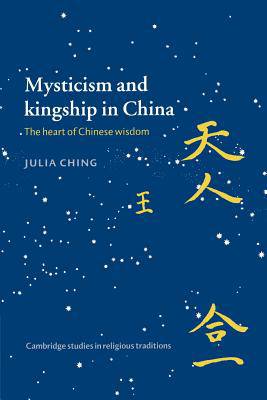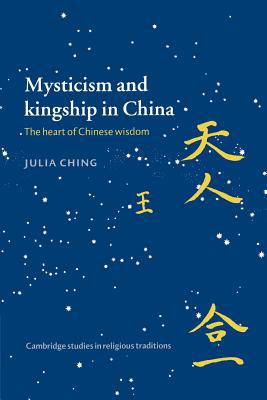
Je cadeautjes zeker op tijd in huis hebben voor de feestdagen? Kom langs in onze winkels en vind het perfecte geschenk!
- Afhalen na 1 uur in een winkel met voorraad
- Gratis thuislevering in België vanaf € 30
- Ruim aanbod met 7 miljoen producten
Je cadeautjes zeker op tijd in huis hebben voor de feestdagen? Kom langs in onze winkels en vind het perfecte geschenk!
- Afhalen na 1 uur in een winkel met voorraad
- Gratis thuislevering in België vanaf € 30
- Ruim aanbod met 7 miljoen producten
Zoeken
€ 105,45
+ 210 punten
Uitvoering
Omschrijving
In this book, Julia Ching offers a survey of over 4,000 years of Chinese civilization through an examination of the relationship between kingship and mysticism. She investigates the sage-king myth and ideal, arguing that institutions of kingship were bound up with cultivation of trance states and communication with spirits. Over time, the sage-king myth became a model for the actual ruler. As a paradigm, it was also appropriated by private individuals who strove for wisdom without becoming kings. As the Confucian tradition interacted with the Taoist and the Buddhist, the religious character of spiritual and mystical cultivation became more pronounced. But the sage-king idea continued, promoting expectations of benevolent despotism rather than democratization in Chinese civilization.
Specificaties
Betrokkenen
- Auteur(s):
- Uitgeverij:
Inhoud
- Aantal bladzijden:
- 328
- Taal:
- Engels
- Reeks:
- Reeksnummer:
- nr. 11
Eigenschappen
- Productcode (EAN):
- 9780521468282
- Verschijningsdatum:
- 13/11/1997
- Uitvoering:
- Paperback
- Formaat:
- Trade paperback (VS)
- Afmetingen:
- 153 mm x 228 mm
- Gewicht:
- 449 g

Alleen bij Standaard Boekhandel
+ 210 punten op je klantenkaart van Standaard Boekhandel
Beoordelingen
We publiceren alleen reviews die voldoen aan de voorwaarden voor reviews. Bekijk onze voorwaarden voor reviews.









